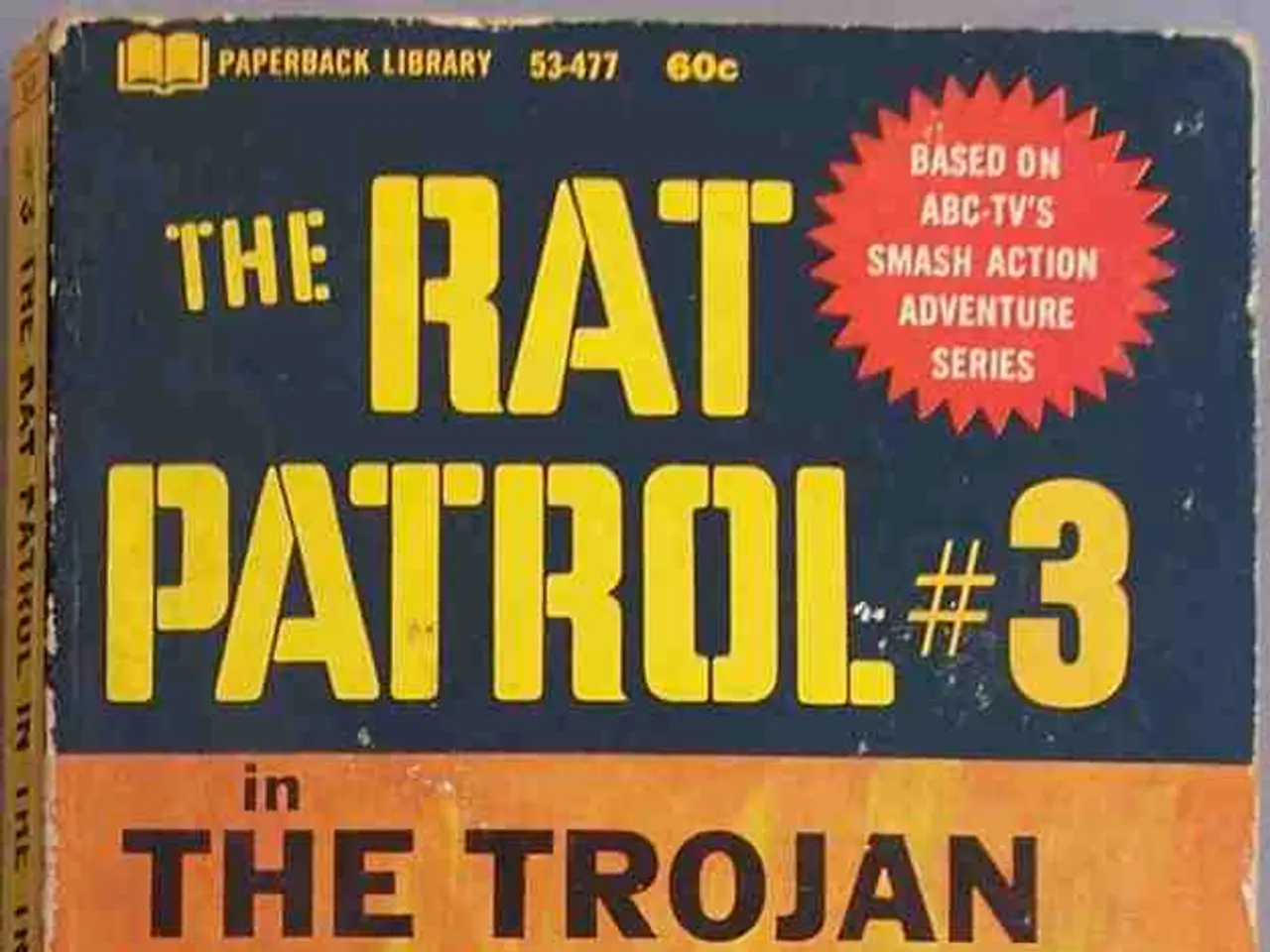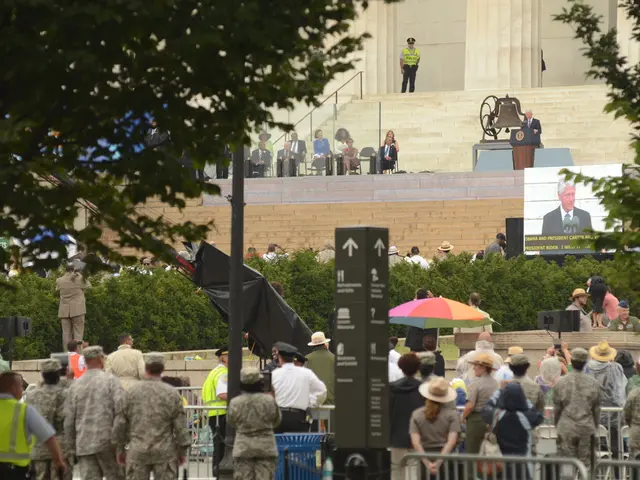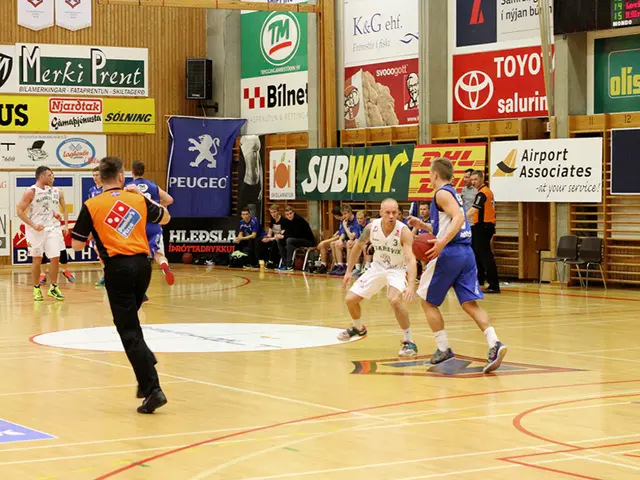Scandalous behavior, fueled by alcohol, has become an embarrassment for the Russian Military Forces
In a recent court decision, a resident of Ust-Yansky District was found guilty of using an extremist slogan against the Armed Forces of the Russian Federation. The individual, identified as N., was brought to the police for questioning ten days after a conflict in a local dormitory on June 26.
The conflict involved N. and security guards from a private security company. During the altercation, N. is said to have used a forbidden greeting that is deemed as public actions aimed at discrediting the Armed Forces of the Russian Federation. This slogan is associated with extremist organizations banned in Russia.
N.'s guilt was established due to his offensive words and actions during the conflict with the security guards. It is important to note that the court's decision does not specify any penalties or punishments for N., nor does it mention any connection between N. and extremist organizations.
The court's decision was made in response to the case initiated by the police regarding the conflict in a dormitory in Ust-Yansky District. The individual, N., was found guilty under part 1 of article 20.3.3 of the Code of Administrative Offenses of the Russian Federation on July 9.
Interestingly, N.'s previous military service, both as a conscript and on contract, was not a factor in the court's decision. The incident was reported by the Telegram channel "Torboznoe Radio" on June 15.
It is worth noting that the use of extremist slogans related to the Armed Forces of the Russian Federation falls within a broad and increasingly strict legal and social context in Russia concerning extremist materials and actions. Russian authorities have recently intensified efforts to identify, criminalize, and penalize activities involving extremist content, which can include slogans deemed extremist or anti-state.
This legal framework, which combines labeling content as extremist and social pressure to maintain ideological conformity regarding the Armed Forces of the Russian Federation, reflects a broader crackdown on perceived dissent and ideological opposition.
Despite N.'s self-proclaimed patriotism of Russia, the court's decision does not address this aspect. Additionally, the court's decision does not provide any information about the future legal proceedings or appeals.
This case serves as a reminder of the sensitive nature of extremist slogans related to the military in Russia and the potential legal consequences that can arise from their use.
The court decision regarding N's case, following a dormitory conflict on June 26, falls under the broad legal and social context in Russia concerning extremist materials and actions, specifically regarding the Armed Forces. This case highlights the potential legal repercussions for using extremist slogans related to the military in Russia, regardless of one's perceived patriotism.







